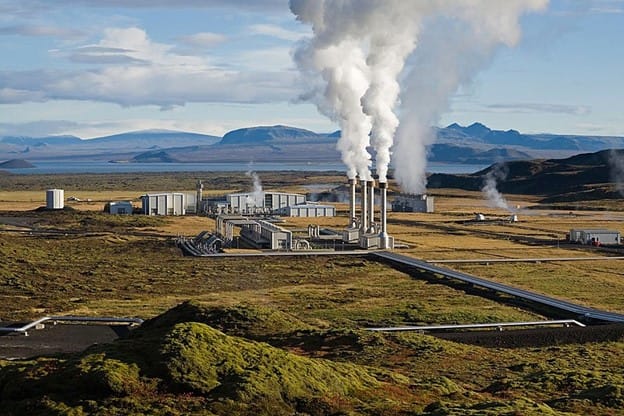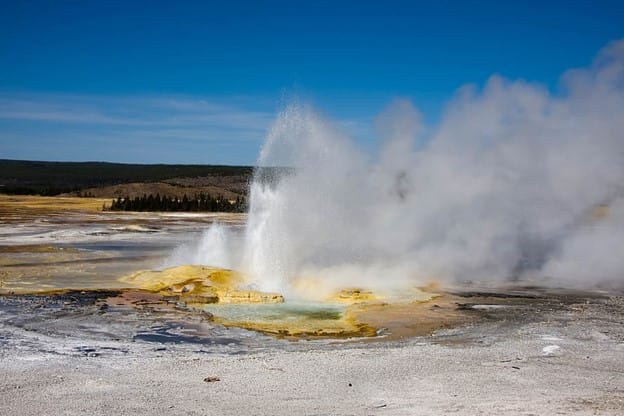Will Geothermal Power Surge in the Global Energy Transition?
Geothermal energy, a reliable renewable source, has vast untapped known geothermal potential for development. Amid the global energy shift, the sector is poised to triple by 2030. Seize the opportunity to invest not just for returns but in shaping a sustainable future.

With the global energy transition shift away from fossil-based systems, one important source for consideration is geothermal energy. In this newsletter, we delve into the geothermal energy market, exploring its current state, potential for growth, and why now is the opportune moment for investors to act not just for returns but in shaping a sustainable future.
Unearthing the Geothermal Landscape
Geothermal energy harnesses the Earth's natural heat from beneath its surface, offering a consistent and renewable energy source. Unlike traditional fossil fuels, geothermal energy produces minimal greenhouse gas emissions, positioning it as a key player in the transition to a more sustainable future. The market has witnessed significant advancements in technology, drilling techniques, and project efficiency, making geothermal energy a viable and competitive alternative.
How does geothermal energy work? (video)
According to the United States Department of Energy, geothermal energy has the potential to contribute a dependable and flexible generation capacity of up to 120 gigawatts in the United States by 2050. Note, that 1 gigawatt could power about 100 million LED light bulbs. This could account for more than 16% of the anticipated electricity demand in the country. Notably, geothermal stands out as a feasible and clean energy option in regions such as the Asia Pacific, where the construction of other renewable energy sources faces greater challenges. However, the widespread adoption of geothermal energy has been hindered as traditional technologies are economically viable only in areas where subterranean heat is readily accessible.
Why Invest Now?
Environmental Sustainability
Geothermal energy aligns with global efforts to reduce carbon footprints and combat climate change, as the world accelerates a clean energy transition on a planetary scale. Geothermal power generation produces significantly lower greenhouse gas emissions compared to conventional fossil fuels. It is estimated that geothermal plants emit only 5-10% of the CO2 emissions associated with coal-fired power plants. At the end of 2023, world leaders, policymakers, activists, and corporate leaders convened in Dubai for the twenty-eighth United Nations Conference of Parties, known as COP28. After the meetings, which represent 224 countries, the final agreement calls on countries to contribute to the global tripling of renewable energy capacity and doubling of the rate of energy efficiency improvements by 2030. Countries and investors supporting these clean energy solutions contribute to a more sustainable future while enjoying the benefits of a growing market.

Growth and Steady Returns
Given it harnesses the Earth's natural heat and it is not dependent on weather conditions, unlike other renewable sources, geothermal projects have a high level of predictability in terms of energy production, offering investors a stable and consistent source of returns. According to Fortune, the global geothermal energy market size was valued at $59 billion in 2021 and reached a valuation of $63 billion in 2022. The market is expected to reach $96 billion by 2029 with an annual growth rate of 6.3% during the forecast period.
The global potential for geothermal energy is vast, with estimates suggesting that only about 6.5% of the known geothermal resource base has been tapped, leaving substantial untapped potential for development. The International Geothermal Association predicts the geothermal sector will triple (3x) by 2030 with a total of 48 gigawatt electrical capacity for the power sector and 520 GWT of capacity for the heating and cooling sector e.g. residential, commercial office and data center buildings. Geothermal energy projects are attracting increased investment. In 2021, the global investment in geothermal projects exceeded $1.5 billion, reflecting a small but growing confidence and interest from both public and private investors.
Technological Advancements and Diverse Applications
Recent technological breakthroughs, such as enhanced geothermal systems and novel drilling techniques, have increased the efficiency and viability of geothermal projects. These innovations open doors to new opportunities and reduce investment risks. For example, a recent project for Google data centers tapped into subsurface heat with two horizontal wells and installed fiber-optic cables to capture data that shows the flow, temperature, and performance of the geothermal system in real time. The result is a geothermal plant that can produce round-the-lock carbon-free energy using less land than other clean energy sources and drawing on skills, knowledge, and supply chains that exist in other industries.
The pricing of electricity from geothermal power is now on par with or even lower than that of conventional fossil fuels. Continuous technological progress, particularly in enhanced geothermal systems and binary cycle power plants, is bolstering the efficiency and feasibility of geothermal projects, thereby mitigating exploration risks. Geothermal energy showcases versatility, extending beyond electricity generation. It finds applications in direct heating, contributing to district heating and cooling systems for substantial residential, and corporate campus developments and data centers.

Government Support and Incentives
Governments around the world are actively promoting geothermal energy through incentives, subsidies, and favorable policies. The recent 2022 United States Inflation Reduction Act (IRA) has triggered hundreds of billions of dollars in investment in clean technology. By investing now, individuals can capitalize on these financial benefits and contribute to the global transition to sustainable energy.
Governments worldwide are increasingly recognizing the importance of geothermal energy in achieving climate goals and job creation. Numerous countries have committed to expanding their geothermal capacities, with supportive policies and financial incentives. The geothermal industry plays a role in generating employment, both directly and indirectly. It is estimated that for every megawatt-hour of geothermal power generated, around 3.5 jobs are created, covering various aspects such as project development, drilling, and maintenance.
Your Time to Invest Now in Geothermal Energy
The geothermal energy market stands at the crossroads of environmental responsibility and financial opportunity. Now, more than ever, investors have the chance to support a sustainable future while reaping the rewards of a maturing and expanding market. Invest in the power beneath our feet. Invest in geothermal energy.
Fun Fact
In Iceland currently, 90% of all its homes are heated by geothermal energy.
Free newsletter content
Twice a month with our newsletter distribution, we will discuss the market trends in one of our six themes below:
1. Renewable Energy (think solar, wind, hydroelectric)
2. Resources (think hydrogen)
3. Circular Economy (think water)
4. Energy Storage (think battery power grid)
5. Carbon Capture and Storage (think Carbon dioxide CO2 capture)
6. Green Transportation (think electric vehicles)
Premium newsletter summary
With paid Premium content, you can access our select investments now. They are ready to invest today with no minimum investment amounts and they are accessible in established liquid stock markets to easily buy or sell your investments at any time. Make it your monthly habit!
We also include their Environmental, social, and governance (ESG) score. The ESG data focuses on sustainability, diversity, human rights, license to operate, business ethics, and corporate governance. Using 630 metrics, ESG scores provide a comparison of a company's practices with their industry peers. The higher the score the better the company in their peer group.
Return Habit donates 2% of annual profits to underserved communities for green jobs and education. These jobs and training are critical for our community and economy.
